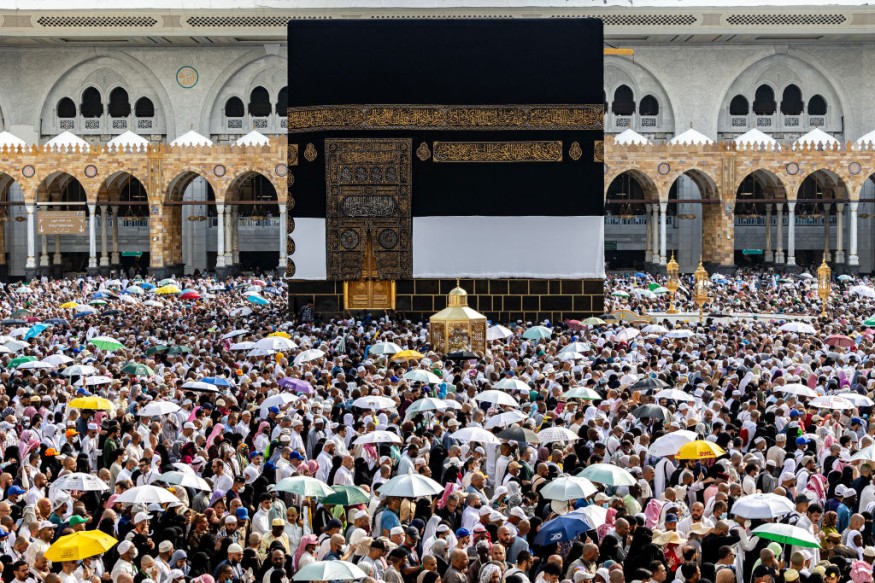Climate change exacerbated the heatwave in Saudi Arabia that killed 1,300 people during the hajj this month, according to a group of European scientists.

Human-Caused Climate Change
On June 16 to June 18, temperatures throughout the path occasionally hit 47 degrees Celsius and at Mecca's Great Mosque, they surpassed 51.8 degrees Celsius.
In the absence of human-caused climate change, the heat would have been about 2.5 degrees Celsius colder, according to a ClimaMeter weather attribution analysis.
ClimaMeter studies how speedily climate change is influencing particular weather occurrences. By using satellite observations for the past 40 years, the researchers compared the meteorological patterns from 1979-2001 and 2001-2023.
Despite the fact that the desert region's heat levels have been occurring for a long time, they alleged that this month's extreme heat was due to global warming and that there was no way natural variability could be behind such an event.
The evaluation also found that, despite temperatures being more severe in June than July, there were similar incidents of the same intensity in Saudi Arabia with other months such as May and July.
Scientist Davide Faranda of France's National Centre for Scientific Research who worked on the ClimaMeter research, revealed that the most vulnerable hajj pilgrims suffered from the record high temperatures resulting from the burning of fossil fuels this year.
Experts stressed that climate change has made heat waves hotter, more frequent and more prolonged.
Findings of the very recent studies carried out by the experts working with the World Weather Attribution shows that the average heat wave across the globe today is 1.2 degrees Celsius, warmer as compared to periods before the industrial era.
Challenges Of Hajj Pilgrimage
Usually, it is heart diseases or heat-related coronaries made worse by high temperatures, rather than heat, that are typically linked by experts with deaths. Nevertheless, the experts say that many of the 1,300 haj-related deaths were probably due to extreme heat.
According to Mohamed Adow, director of organization Power Shift Africa, it is imperative that people are made aware of the dangers associated with an activity that is so fundamental to the Muslim faith.
The Saudi government admitted that the unregistered number of pilgrims has been a challenge to the organizers. While the majority of registered pilgrims traveled in air-conditioned buses, some unregistered pilgrims reported walking in the extreme heat.
Authorities note that among the 1,301 pilgrims who died, 83% were not registered.
According to pilgrims, Saudi officials would frequently inspect buses to make sure that the passengers were only authorized pilgrims. This year, around two million pilgrims performed the Hajj according to the customs established by the Prophet Muhammad fourteen centuries ago.
One of the world's top oil producers, Saudi Arabia, frequently takes actions to obstruct and postpone taking action on climate change. Experts stressed that they must understand that the things they do have consequences.
Saudi Aramco, the state-owned oil company, is the greatest corporate greenhouse gas emitter in the world while Saudi Arabia is the second-largest oil producer in the world, after the United States.
Database of emissions from carbon majors opens a new tab that shows that it accounts for more than 4% of global historical carbon emissions.
© 2025 NatureWorldNews.com All rights reserved. Do not reproduce without permission.





